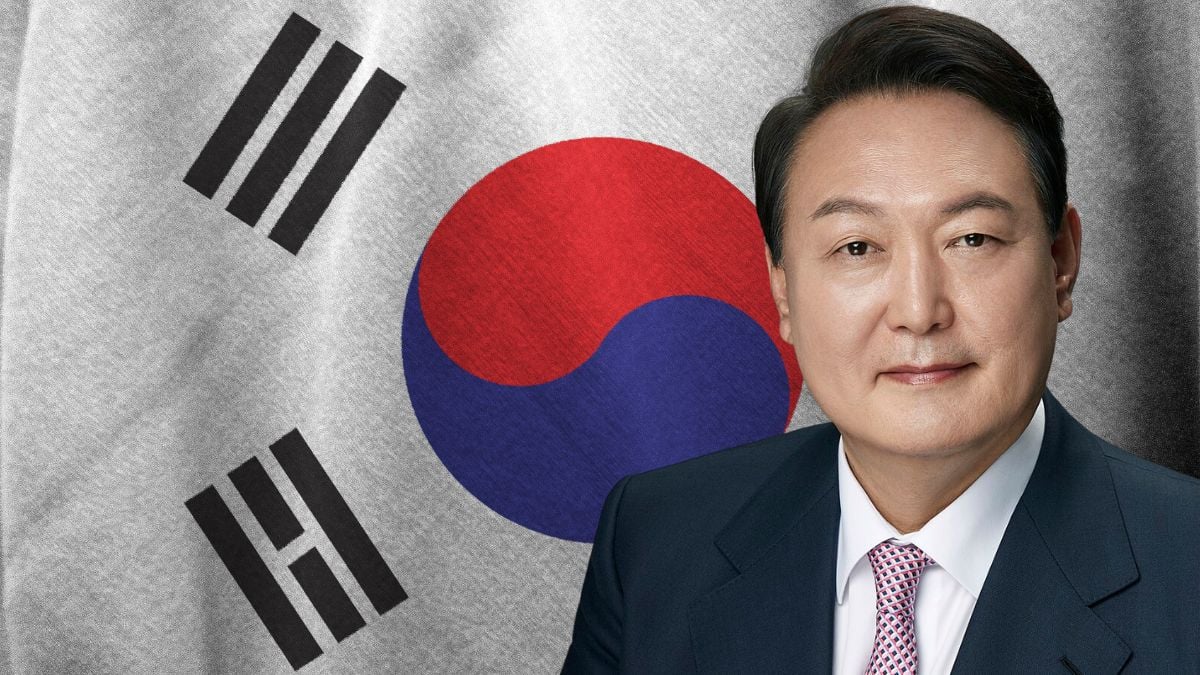
The announcement of the declaration of martial law in South Korea by President Yoon Suk Yeol has sparked an exponential increase in Google searches related to this term. This decision, considered unprecedented in the recent history of the Asian country, has led millions of people to seek to understand what this measure entails and how it will impact the international landscape.
Here, we explain what martial law is, why it has been declared in South Korea, and the reactions both within and outside the country.
What does martial law mean, and when is it applied?
Martial law is an exceptional measure in which the control of a country or region is taken over by military forces. It is applied in extreme emergencies, such as armed conflicts, severe civil unrest, or natural disasters, when civilian institutions cannot maintain public order.
In the case of South Korea, the Constitution outlines two types of martial law:
- Precautionary martial law: Implemented in alert situations but allows for the maintenance of most civil rights.
- Extraordinary martial law: Imposes severe restrictions, including the suspension of fundamental rights such as freedom of expression, press, and assembly.
The president must notify the National Assembly about the declaration of martial law, and if the Assembly votes for its repeal, the president is obliged to comply.
🇰🇷 | BREAKING: Clashes between civilians and military begin in Seoul, South Korea. The president has just declared martial law. pic.twitter.com/4agxzu4Q9o
— UHN PLUS (@UHN_Plus) December 3, 2024
Why did South Korea declare martial law?
In a televised announcement, President Yoon Suk Yeol justified the declaration as a response to “protect South Korea from the communist forces of North Korea” and “eradicate anti-state elements.” According to the president, the country faces internal threats that compromise its security and stability.
Yoon accused the Democratic Party, the majority opposition in parliament, of:
- Paralyzing government functions through significant budget cuts.
- Passing motions to dismiss key figures in the judicial and administrative systems.
- Turning the parliament into a “haven for criminals.”
The president also claimed that these actions have turned South Korea into a state of public safety chaos and a haven for drugs. These statements have sparked a wave of controversy in both political and social spheres.
READ ALSO. NYT reveals recruitment of students to manufacture fentanyl and Claudia Sheinbaum compares it to Breaking Bad
What measures will be implemented under martial law?
Under martial law, several fundamental civil rights are suspended or restricted. According to Yonhap News Agency, the measures in the decree issued by the South Korean president include:
- Suspension of parliamentary and political activities: All activities of political parties are prohibited.
- Control over media: Media content and editors will be under supervision, as the decree also bans “denying free democracy or attempting subversion,” “fake news,” and “manipulating public opinion,” according to CNN reports.
- Restriction of meetings and demonstrations: Public gatherings are prohibited without prior authorization.
- Detentions without a warrant: Authorities can arrest citizens without needing to present immediate charges.
These measures have instilled fear and confusion among the population, especially in a country that has not experienced martial law since the military dictatorship of the 1980s.
What has been the reaction in South Korea?
The declaration of martial law has created a climate of uncertainty and political confrontation:
- Political opposition: Lee Jae-myung, leader of the Democratic Party, called the measure “illegal and unconstitutional.”
- Social confusion: The streets of Seoul were filled with citizens trying to reunite with their families amid fears of the unknown. “Many are trying to understand what this means for our democracy,” a citizen told CNN.
- Internal resistance: Even figures from the ruling party, such as Han Dong-hoon, expressed disagreement with the decision, calling it “wrong.”
What does martial law mean for democracy in South Korea?
The declaration of martial law has raised concerns about the country’s democratic stability. South Korea, considered one of Asia’s most consolidated democracies, now faces an unprecedented challenge. Analysts fear this measure could erode trust in institutions and deepen political divisions.
Specialized soldiers from South Korea entering the parliament. pic.twitter.com/33u1Zjv9ox
— Evil Neura (@EvilNeura) December 3, 2024
How did the United States react?
The U.S. government, a close ally of South Korea, stated that it is closely monitoring the situation. A National Security Council spokesperson said they are in contact with South Korean authorities but did not issue an official stance on the measure.
Meanwhile, international human rights organizations have expressed concern over the imposed restrictions, warning about their impact on civil liberties.
The country’s immediate future will depend on how the situation unfolds. The National Assembly could overturn martial law if it gathers the majority needed to block it. Meanwhile, South Korea’s population lives in uncertainty, trying to understand how this measure will affect their daily lives.










